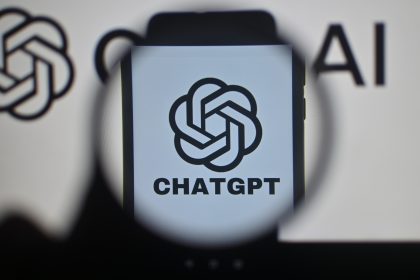As artificial intelligence reshapes industries, fears of job displacement loom large. Yet, this technological revolution is also birthing entirely new career paths. These emerging roles blend technological prowess with uniquely human skills, positioning AI as a collaborator rather than a replacement in the workforce.
For those looking to stay ahead of the curve, here are five AI-created jobs to consider and the skills needed to excel in them:
AI ethicist: The moral compass of machine learning
As AI systems become more ubiquitous and influential, the need for ethical oversight grows. AI ethicists ensure that these powerful tools are developed and deployed responsibly, tackling issues like data privacy, algorithmic bias, and the societal impact of AI.
Key skills:
- Ethics and philosophy
- AI and machine learning fundamentals
- Policy development
- Critical thinking and communication
In a landscape where AI increasingly influences crucial decisions, from hiring practices to criminal justice, AI ethicists will play a pivotal role in safeguarding fairness and transparency.
AI-assisted health care specialist: The future of patient care
The health care industry is experiencing a seismic shift with AI integration. AI-assisted health care specialists will bridge the gap between cutting-edge technology and traditional medical practices, leveraging AI-driven diagnostic tools and predictive models to enhance patient outcomes.
Key skills:
- Medical knowledge
- Proficiency in AI-driven diagnostic tools
- Health care data analysis
- Interpersonal communication
This role exemplifies the synergy between human expertise and artificial intelligence, ensuring that technological advancements translate to improved patient care.
AI-enabled educator: Revolutionizing the classroom experience
Education is on the brink of an AI-driven transformation. AI-enabled educators will harness machine learning to create personalized learning experiences, using AI-powered platforms to track progress, predict outcomes, and tailor teaching methods to individual needs.
Key skills:
- Educational technology proficiency
- Data-driven decision making
- Advanced pedagogical methods
- Adaptability and creativity
As education becomes more personalized and adaptive, educators who can effectively integrate AI into their teaching practices will be in high demand.
AI business strategist: Navigating the new corporate landscape
The integration of AI into business operations necessitates a new breed of strategist. AI business strategists will help companies leverage artificial intelligence to optimize processes, make data-driven decisions, and gain a competitive edge in increasingly tech-driven markets.
Key skills:
- Business analytics
- AI and machine learning applications
- Strategic planning
- Data interpretation and visualization
This role sits at the intersection of technology and business acumen, making it crucial for companies aiming to thrive in an AI-dominated business world.
AI-driven content creator: Redefining the creative process
The creative industries are not immune to the AI revolution. AI-driven content creators will collaborate with machine learning tools to produce innovative marketing campaigns, generate art and music, and even craft narratives. These professionals will guide AI to ensure content remains engaging, relevant, and uniquely human.
Key skills:
- Proficiency in AI-powered content creation tools
- Visual design and multimedia production
- Creative thinking and adaptability
- Understanding of AI-driven marketing platforms
As AI takes on more routine creative tasks, the value of human creativity and intuition in guiding these tools will only increase.
Preparing for the AI-driven future
The rise of artificial intelligence is not just changing existing jobs—it’s creating entirely new career paths that blend human ingenuity with machine efficiency. To thrive in this evolving landscape, professionals must start preparing now:
- Embrace continuous learning: Stay updated on AI advancements and their applications in your field.
- Develop a multidisciplinary skill set: Combine technical knowledge with soft skills like critical thinking and creativity.
- Gain practical experience: Seek out opportunities to work with AI tools and technologies in real-world settings.
- Network and collaborate: Connect with professionals across industries to understand the broader impact of AI.
- Stay adaptable: Be prepared to pivot and evolve as new AI applications emerge.
The integration of AI into the workforce isn’t a threat—it’s an opportunity for those willing to adapt and grow. By focusing on roles that complement AI rather than compete with it, professionals can position themselves at the forefront of the next industrial revolution.
As we stand on the cusp of this AI-driven era, the message is clear: the future belongs to those who can harness the power of artificial intelligence while bringing uniquely human skills to the table. The time to prepare for these emerging careers is now.
This story was created using AI technology.













